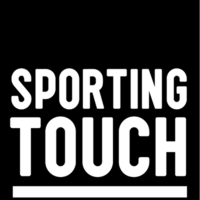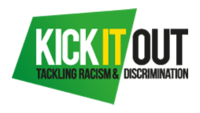Why did you become a match official?
I qualified almost 10 years ago now which is hard to believe. I did the qualification through the football club I was playing for at the time. I wasn't getting a great deal of game time so when the club said, “We’ve got you the chance to do your referees course with the county FA”, I jumped at the chance. After all, it was another way of getting to be involved in more football.
I didn't referee much that season I qualified, as I was more interested in playing at the time.
As I still wasn’t getting much game time the following season, I started refereeing on a Sunday in my local boy's league, which was mainly under 12 to under 16. I then started to get involved in the adult game and running the line on a Saturday afternoon as well as youth football on a Sunday. I just wanted to be involved in as much football as I could physically do!
How did you feel officiating your first match as a qualified referee?
My first game as a referee was when I was at school. The PE teachers asked me if I would be happy to officiate a year 7 game, which I agreed to do and it helped me feel at ease knowing that I had my teachers there. As this was a year 7 game I knew it wouldn't be as challenging a fixture to officiate in comparison to a year 10 or 11 game. Thankfully, the match went really smoothly. This gave me the confidence to referee in my local league where my family took me to my games (as a still couldn’t drive at the time) and it was nice to have the support from someone neutral.
What level referee are you?
In the women's game, I’m a level 3W match official which means I can officiate in The FA Women's National League and both the Premier Divisions and Division One. At the start of the season, I was also selected to be a 2WAR, meaning I could receive appointments as an assistant referee in The FA Women’s Championship.
In the men's game, I’m a level 5 match official currently on the Midland Football League.
Who inspired you to become a match official?
The first person that comes to mind is Sian Massey-Ellis. When I got into refereeing, she was the main female role model. Seeing Sian operating in the men’s game and seeing a female match official working in the Premier League was a bit of a “wow moment”. I thought “if she can do this, why couldn't anyone else?”
Anthony Taylor is another match official I look up to. I try to pick out positive things from his performances, like the way he is calm even when it's kicking off between the players. His approach is something I try and take into my game.
From a local point of view, being able to network with other referees in my area by officiating county cup matches and working with officials that I haven't before has really helped. You’re always learning from each other.
What has been your favourite moment in your refereeing career so far?
I would say being selected to referee The FA Girl’s Youth Cup Final in 2018. First of all, I thought that’s amazing, maybe I’m the fourth official or running the line but when it came through that I was the referee I was not expecting it, but I was really grateful. I remember leading up to the final I was unwell which affected my training ahead of the game, but thankfully I recovered in time. It was a really good game between Manchester City Under 16’s and Reading Under 16’s and I remember Manchester City under 16’s winning the game 3-1.
How has The Referees’ Association supported you as a referee?
When I was still playing for a team, we regularly had the same referee officiating our matches and he mentioned to my step-dad about Cannock Chase RA where he went. I started attending meetings and it wasn’t a very big group, but they took the time to listen to me and let me take my time in getting involved with things. It was nice to have a group of people who were interested in supporting young referees, like me. One year I saw the RA Development weekend being advertised on social media so I showed an interest in going to the event. I went along to the weekend and I loved it. Being able to network with other referees around the country was brilliant. I didn’t know what to expect but seeing match officials from the Football League and Premier League was great and I thought “wow, this is amazing”.
When I attended the Development Weekend the following year, I spoke to members of RA-FA Youth Council (now the NYRDT) about what they do and I thought I would like to give this a go, so, when the opportunity came up to apply to join the team I applied and joined the group. It was really good to see firsthand what they did then to now and get involved. Being part of the team helped me develop personally as well. While I was part of the team, the pandemic began, so during this time, we wanted to support young referees through Covid-19. The team got together virtually and put a plan together and I was able to create a sub-team to help keep referees of all ages engaged through social media by keeping them active by advertising training challenges. It was rewarding to know that I was playing a small part to help everyone get through a tough time. It was really good to be part of the group, but I decided to step down in the summer last year due to work commitments. Since leaving the NYRDT, I have been able to take on a new role as secretary of my County RA in Staffordshire. Without the experiences with Cannock Chase RA and The NYRDT, I don’t think I would’ve had the skills and knowledge to take the role on. I feel I’m in a good place to support other referees in the RA and across Staffordshire.
What advice would give young female referees who want to progress in their careers?
I would get someone who’s neutral, a friend, parent, another referee, to come and watch you officiate as I always find it useful, even now. If you can’t find someone who can watch you, find people who you can speak to after matches and go through incidents and reflect on what you did well and what you could change for next time. Mainly go out there and enjoy it. The opportunities for females in refereeing are getting growing rapidly and there is no better time to become a referee.
What would you say to young females who want to become a referee?
Go for it! Don’t overthink it and get involved. When I first qualified, I saw it as another way of getting involved in the sport I love and I thought it would look good on my CV. My aim now is to be able to officiate at the top level of the game which I hadn’t even thought about when I first qualified. The opportunities for female referees are brilliant if you want to get involved in refereeing. I’d say contact your local Football Association and join your local RA once you’ve qualified. It’s a great place to network with other match officials.





















